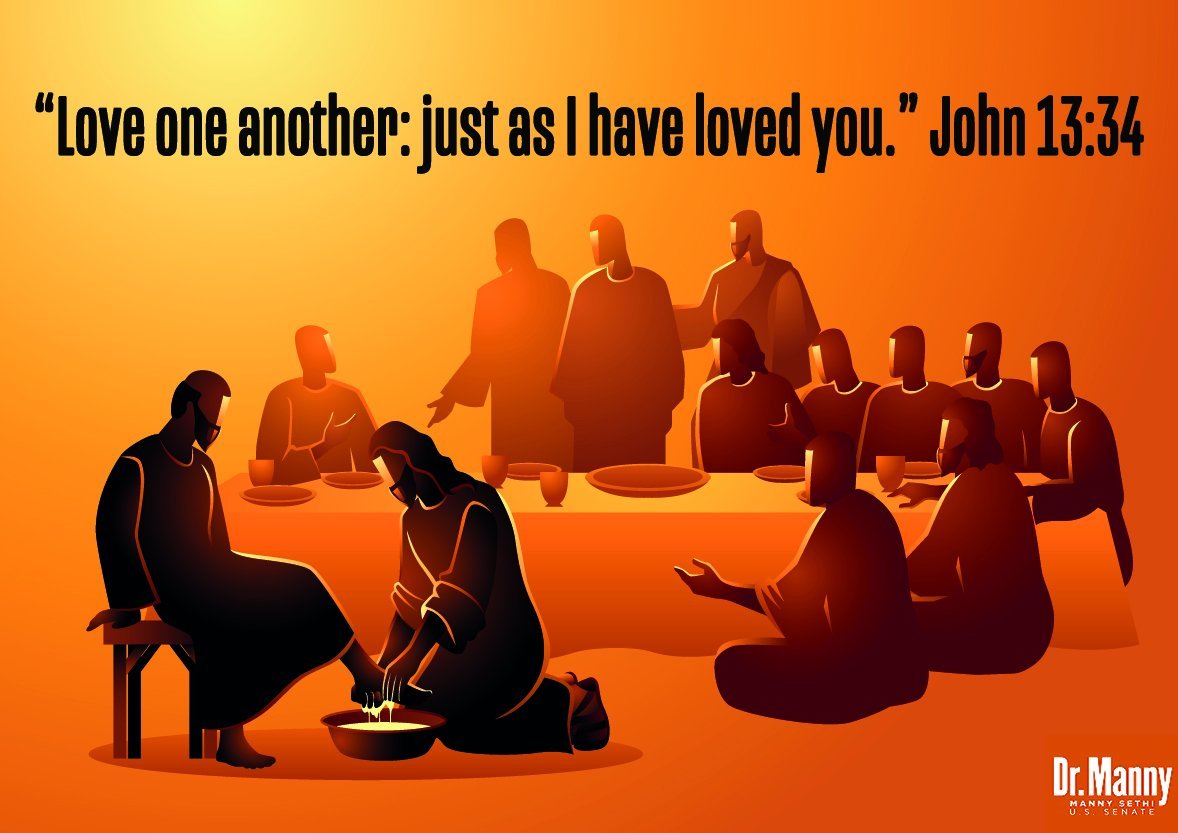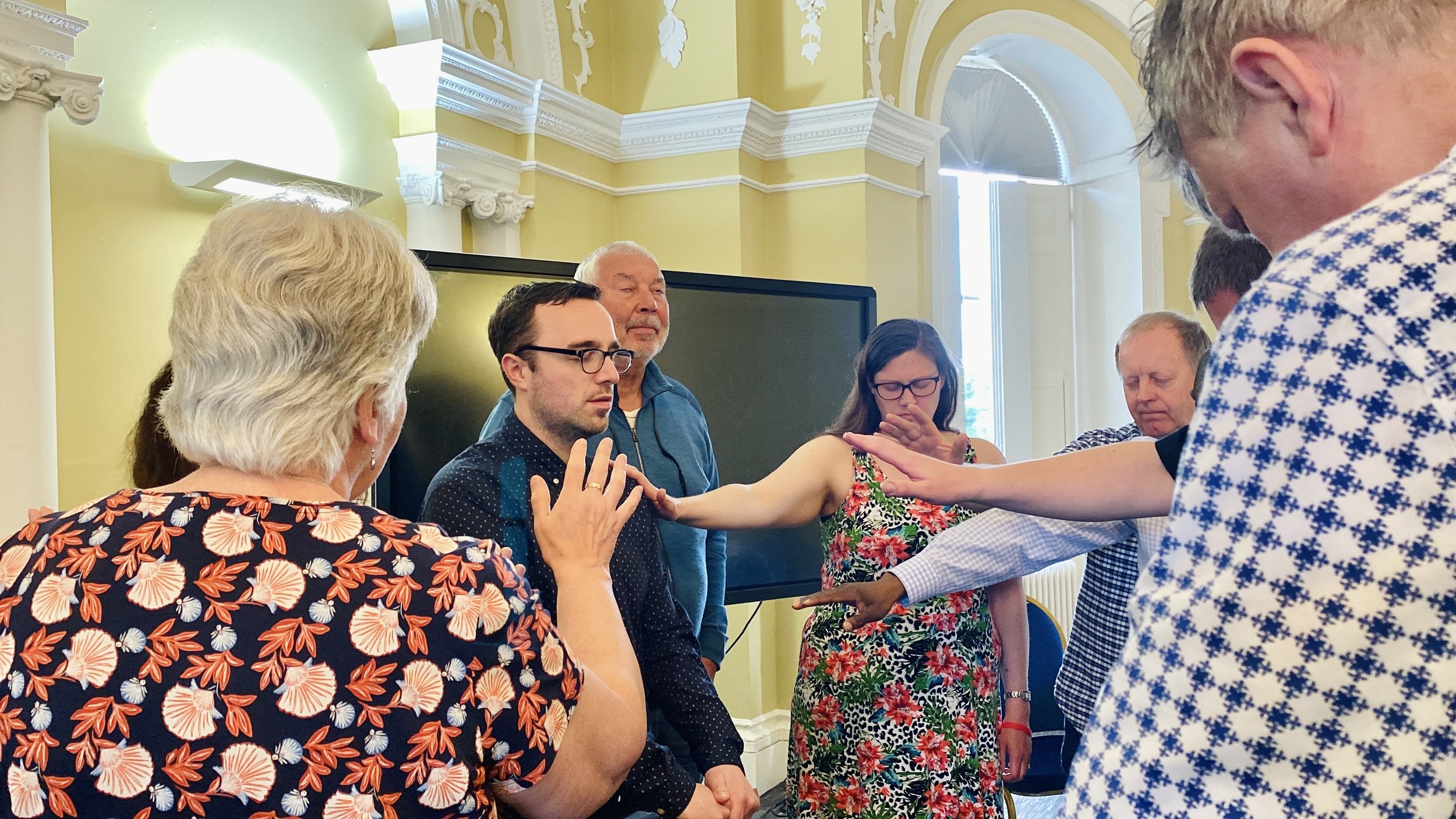Jesus was the perfect model of friendship. He loved without limits so that we could learn what true friendship is with Him, with the Father and with one another.
The question of how to obey the new commandment has been a challenging one to grapple with. What does it look like to love one another unconditionally the way that Jesus first loved us? We talk about love easily, but what does it actually mean for us in practice, on the ground, between church leaders of different denominations?
Eleanor, a leader at Wakefield Baptist Church shares her experience.
Being part of a unity group in a city and attending meetings can often just be a box to tick because it seems to be the right thing to do; but over three years and a series of 43 workshops, we’ve watched as church leaders of different denominations in Wakefield have grown to know one another on a deeper level and become friends through praying together, running joint projects, and meeting informally to eat together.
At our recent Vision Wakefield away day there was a genuine love and warmth in the room. Naz set the tone of the day with a short talk on the guidance of God, followed by some anointed worship. Flora, a leader at Wakefield Baptist Church and at Wakefield City of Sanctuary, felt guided to sing ‘Let there be love’. Though simple, the lyrics are very poignant.
Without this foundation of love, anything we do would be in vain and our message would be empty.
what is our collective message?
After a warm up exercise of sharing and praying together in pairs, we launched into the question of message and narrative. Not only ‘what is our narrative to Wakefield city council?’, but ‘what are the implications of it?’
Some great discussions and questions came out of this, like what kind of relationship do we want with the council? What can we offer them? Do churches need to see beyond budget and numbers in order to gain credibility with the council? Relationship and ongoing dialogue with the council is so much more important than only contacting them for certain projects.
When the group came back together we talked about our language. When it comes to spiritual well-being, the church can’t talk about ‘holiness’ to city councils, but it can talk about ‘wholeness’ - physical, spiritual and mental well-being. We must discover what their heart is and find common ground.
We also discussed just how much the church is doing that the city doesn’t know about, how can we ‘let our light so shine?’ Letting our light shine feels somewhat controversial to us Christians, as we are also called to be meek and humble…how can we find a healthy balance? The more time we have spent with the leaders in fellowship and workshops, the more we have discovered just how many good news stories of God’s goodness there are to celebrate and showcase!
What is the potential of the collective church combating loneliness?
Loneliness is just one of the many things crippling our nation, so we talked about ways in which the church has and could combat it. On our tables we heard some heart warming stories of when congregation members have said things like ‘the church saved my life’, and ‘church is the only place I see and speak to people’. These are the kinds of stories very much worth capturing!
We discussed the fact that many churches aim to be community hubs where people of all backgrounds come for various well-being enhancing activities, feeling loved and accepted with no judgement or pressure on them. Many areas really benefit from these local community hubs, and would be greatly effected if they were to close down. It’s important as the church to help build stronger, more supportive networks and communities, where we can learn to love those around us as Christ loves us.
Speaking of well-being; fresh air and exercise is good for the mind, body and soul, so we headed out for a walk in small groups to reflect and continue our discussions in the sunshine and beautiful greenery of Heath common. We enjoyed lunch together on our return.
After lots of thinking and plenty of stimulating conversations in the morning, we came before His throne again to reset for the afternoon, singing ‘I surrender’. It was also a privilege to honour and pray for Luke who is stepping into the role of lead pastor at New Life Church in Wakefield, as Kevin leaves Wakefield for a new adventure in September.
Measuring the spiritual climate of the city
How well do we know our cities? How often do we even think about the city as a whole, and our role in it and for it as the collective church? It is so easy to get caught up in our own area and to not consider the the bigger picture, but the truth is that the spiritual climate of the city is our responsibility to measure and to partner with God to shift.
We were shocked to hear some of the the pain points in Wakefield and the cost of them to the economy, such as family breakdown costing approximately £260 million a year, rehab services £55 million a year and mental health problems £193 million a year. Think about the impact that a change in the spiritual climate of the city could have on these figures.
We posed this statement to the leaders, ‘The spiritual climate in the city is the responsibility of the church leaders and a function of their collective relationship. Discuss.’
This lead to some really interesting discussions about leadership and the role of leaders in churches. A few people raised a good point that if a leader is truly discipling, equipping and mobilising their church members to model Jesus to those around them in their every day lives, then the spiritual climate of the city would certainly be impacted and change significantly.
So, what is the ball in the back of the net?
We discussed what the criteria are that we use to establish the spiritual climate in the city, below are some of the ideas shared:
Disciple making
How actively people are involved in prayer (more prayer-centres)
Less addiction and poverty
Healthy relationships in every aspect
Knowledge of God in the city
Youth actively seeking and knowing God
More peace (covers a lot)
Less people hospitalised
Healthier communities, connections and care for neighbours
Supernatural occurrences, e.g healings and miracles
Reaching the 350,000
We then discussed how to reach the 350,000 non-believers in Wakefield and what that actually means tangibly. It raised the questions, ‘how can we learn ourselves and teach our church members to share their faith?’, ‘what outreach work can we collectively do on the estates in Wakefield’ and ‘how do we break the strong British culture of not talking about religion?’
Reaching the youth
Following this we looked at the question, ‘How do we reverse the process of a slowly ageing (and therefore dying) church in Wakefield making it attractive to the young?’
David said that youth these days don’t ask ‘is it true?’, they ask ‘does it work?’, which is food for thought as we begin to think about possible collective events and activities for the youth in the city of Wakefield.
Luke shared this article, ‘7 conversations your church needs to have to reach young adults’ - https://www.eauk.org/what-we-do/initiatives/the-young-adults-conversation/7-conversations
It was a truly stimulating day, getting to the nitty gritty of some great questions together. Watch David Gerrard, Vicar at St Catherine’s and St Andrew’s in Wakefield, as he gives an overview of the day and touches on what it means to be working together, even when we don’t agree on some things.
When 3:30pm came everybody was well fed, mentally and physically, and ready to go home and reflect on all that had been discussed. Lots of thoughts, ideas and questions were on our minds to mull over, one question remaining, ‘what does true unity and mutual submission to one another really look like?’
The answer to this question continues to unfold and reveal itself bit by bit, every time we meet, pray and work together as the body of Christ.
Watch these clips below from some of the Vision Wakefield members.
Kevin Foster, Pastor at New Life Church
Flora Davies, Minister at Wakefield Baptist Church
Bishop Tony Robinson, Bishop of Wakefield
Rob Cotton, Methodist Minister at Sandal, Crigglestone, Newmillerdam and Walton










